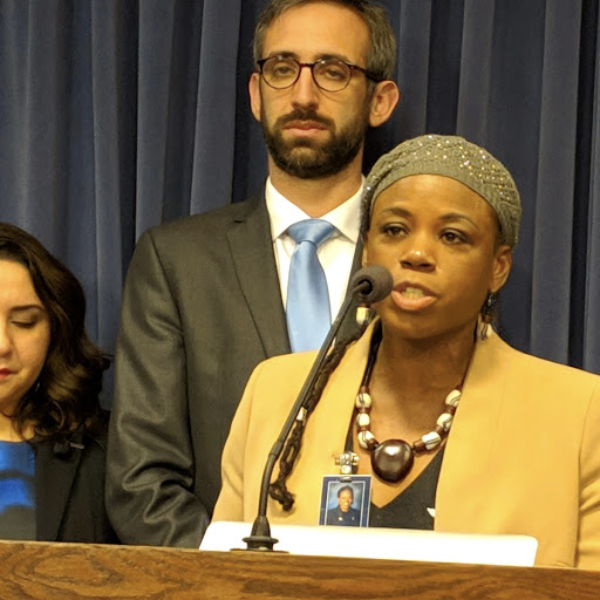
The Mandatory Supervised Release Reentry Freedom Act (HB 1115) took a major step toward becoming a law on April 11. With a 62-47 vote, the state’s lower house passed the bill, after considerable wrangling and discussion on the house floor. The bill’s chief sponsor, Rep. Carol Ammons and members of the Illinois Coalition to Challenge Electronic Monitoring ultimately were able to persuade most Democrats and a handful of Republicans to support the bill. This coalition includes the Center for Media Justice, the Shriver Center on Poverty Law, Chicago Appleseed and BPI.
This is the first bill in any state that would eliminate the use of electronic monitoring (EM) for people who have completed their prison sentence. The IL Department of Corrections has been using EM for more than two decades and currently has about 2,800 people on monitors who have completed their prison terms. They spend about $6.5 million a year on EM. The bill will now move into the broader legislature for a vote into law. There will be some consideration of amendments as well.
The committee hearings in the House were quite contested with Rep.Carol Ammons, the lead sponsor, quoting Michelle Alexander and highlighting the ways in which EM blocks people’s path to success. Legal experts Patrice James from Shriver Center on Poverty Law and Sarah Staudt from Chicago Appleseed pointed out how EM was a barrier to reentry, that there is no proof that it has a positive impact, that other sanctions besides EM were available to the Department of Corrections, and that the GEO Group, the vendor, was getting all the revenue from this program. Chris Harrison then spoke of his personal experience of a year on a monitor, closing with the rhetorical question: if this program is working so well where are all those who have been on EM in this hearing? Why aren’t they coming forward to say how much EM helped them? “Because they don’t exist,” was his answer.
The Illinois Department of Corrections and the Prisoner Review Board representatives came forward with their usual stories about “dangerous criminals” and the need for an intermediate sanction for people on supervised release. When Rep. Will Guzzardi asked for one piece of data showing that EM was effective, the IDOC and PRB had no answer.
The Senate vote will take place in early May.
For more information about the harms of electronic monitoring and to learn more about our #NoDigitalPrisons campaign to abolish this technology, visit https://centerformediajustice.org/our-projects/challengingecarceration-electronic-monitoring/



